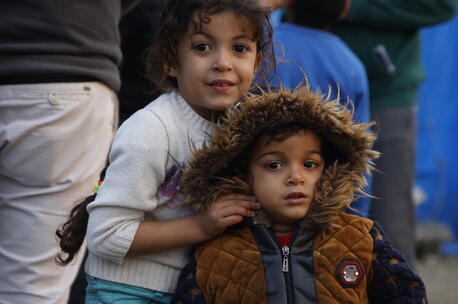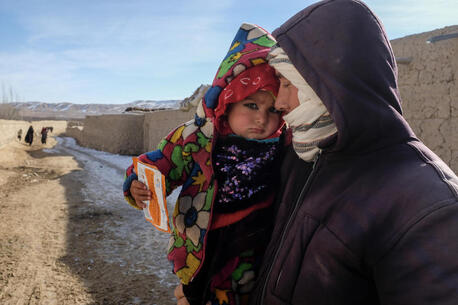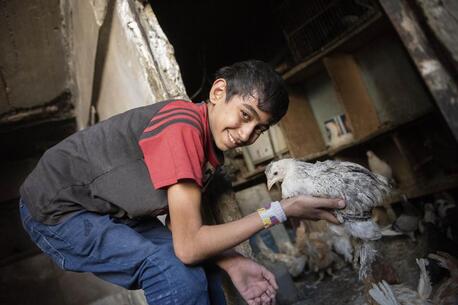Helping children in Syria cope with violence and loss
Sixteen months after the start of the unrest, assaults against civilians, human rights violations, mass arrests, torture, and execution-style killings of families, including children, continue to be a reality in Syria. To protect children from the ongoing violence and to help them regain a sense of normalcy, UNICEF and its partners are providing humanitarian assistance to families caught in Syria, as well as to those who have fled Syria to the neighboring countries of Jordan, Lebanon, and Iraq. Getting displaced children back to school is a central focus of UNICEF's efforts. School is not only important for educational purposes but also for children to make friends and develop routines to help them cope with trauma and loss. Despite repeated calls for an end to the violence in Syria, children continue to suffer as a result of the crisis. As more and more families flee the country, UNICEF urgently requires additional funding to be able to reach more Syrian children in need in the region.
Sixteen months after the start of the unrest, assaults against civilians, human rights violations, mass arrests, torture, and execution-style killings of families, including children, continue to be a reality in Syria.
To protect children from the ongoing violence and to help them regain a sense of normalcy, UNICEF and its partners are providing humanitarian assistance to families caught in Syria, as well as to those who have fled Syria to the neighboring countries of Jordan, Lebanon, and Iraq.
 Getting displaced children back to school is a central focus of UNICEF's efforts. School is not only important for educational purposes but also for children to make friends and develop routines to help them cope with trauma and loss.
In Syria, UNICEF and its partners are providing health, nutrition, education, and protection to children affected by the violence. Since January 2012, UNICEF and its partners in Syria have reached 115,000 people with humanitarian assistance, including more than 80,000 children.
Getting displaced children back to school is a central focus of UNICEF's efforts. School is not only important for educational purposes but also for children to make friends and develop routines to help them cope with trauma and loss.
In Syria, UNICEF and its partners are providing health, nutrition, education, and protection to children affected by the violence. Since January 2012, UNICEF and its partners in Syria have reached 115,000 people with humanitarian assistance, including more than 80,000 children.

Syrian refugee children attend a remedial class, in a child-friendly center, in Lebanon. | © UNICEF/NYHQ2012-0227/Brooks
- Kits containing non-food items such as hygiene materials have been distributed to 5,800 families.
- 7,400 displaced families have received baby kits.
- UNICEF has supported school clubs and remedial classes in 17 schools, providing education, recreational activities and psychosocial support to more than 4,800 children.
- 2,450 Education Bags have been distributed to displaced families.
- UNICEF has supported four child-friendly spaces with the capacity to reach up to 2,000 children.
- 20 health workers received training on nutrition surveillance, including growth monitoring for displaced children. The training aims to improve the capacity of health workers to identify stunting in children and ensure early intervention.


